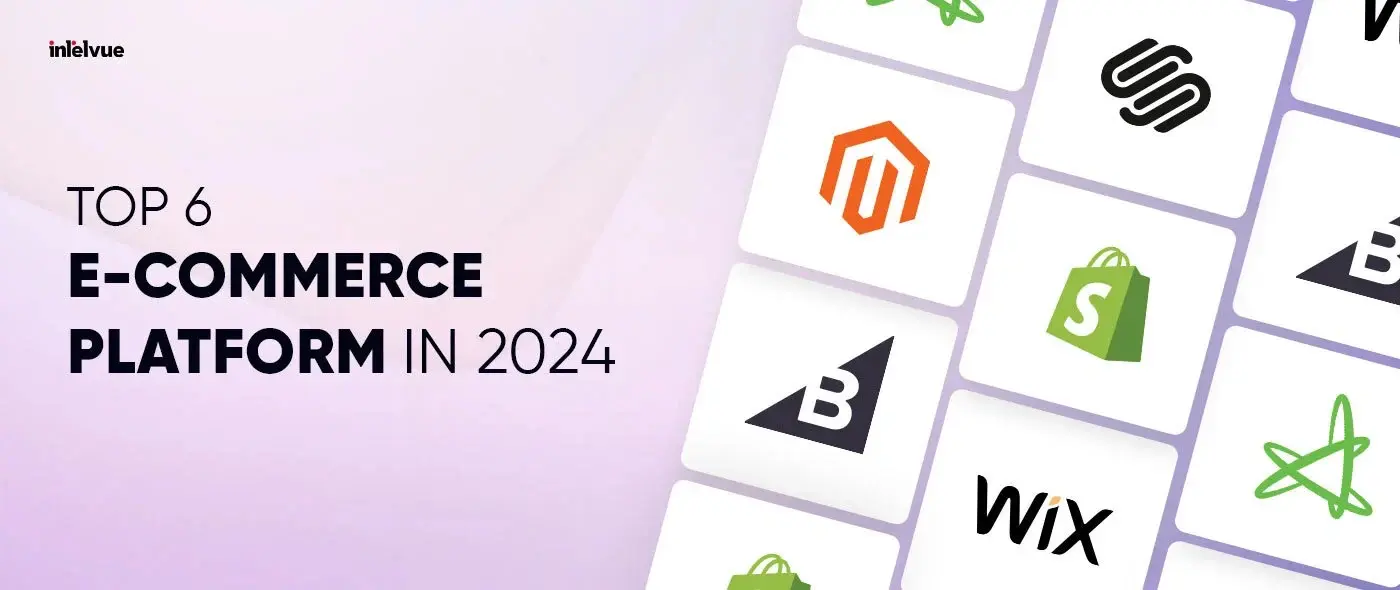
Are you looking for a robust software solution to sell your products online? All you need is an e-commerce platform to start a successful business. E-commerce platforms make it easier for users to create and maintain their online store. You can create a functional store by choosing their best e-commerce platform,. You also get live support to take you through every step of the journey. This blog post will take you through the best options for choosing the best e-commerce platforms in 2024. We will also give a glimpse of the top e-commerce trends in 2023.
Top 6 Best E-commerce Platforms in 2024
Here are the top e-commerce platforms which are popular this year.
| Platform | Ease of Use | 24/7 Support | Community Rating | Chat Support | Phone Support | Number of Apps/Plugins |
|---|---|---|---|---|---|---|
| Shopify | 4.9 | Yes | 5 | Yes | Yes | 5000 |
| BigCommerce | 4.8 | Yes | 4 | Yes | Yes | 4000 |
| Wix | 4.2 | Yes | 4.5 | No | Yes | 700 |
| Core Commerce | 4.5 | Yes | 4 | Yes | Yes | 500+ |
| Square Space | 3.8 | Yes | 3 | Yes | No | 10 |
Shopify
$29 – $299
Best for cross-channel selling
Pros
- Allows multiple channel selling
- Easy and quick to set up
- Excellent themes with a variety of designs
- Fast load time
- Many certified partners assist new users
- One-click selling
Cons
- Fails to customize the checkout process
- Apps can add up and become pricey
- Users may need a developer to add advanced features
One of the most popular e-commerce platforms of 2023 is Shopify. Since its launch in 2006, Shopify has undergone many changes. Today, it is one of the best e-commerce platforms to create a beautiful online store without requiring design or technical skills.
Setting up and running a store is possible within a couple of hours when working with Shopify. You can choose from various templates or design a store of your choice.
Here are the pricing plans of Shopify.
- Basic Shopify: US$29/month
- Shopify: US$79/month
- Advanced Shopify: US$299/month
Another excellent feature is the live chat function, which allows store owners to communicate with their customers in real-time. In addition, Shopify has built-in support for videos and 3D models. What’s more? You can create customizable storefronts on Instagram and Facebook.
The e-commerce platform also provides in-depth analytics of all visitors and unlimited hosting for their stores. Users can also benefit from beneficial marketing tools such as discounts, gift cards, email marketing, and SEO.
Furthermore, Shopify offers three pricing plans. While these plans can be expensive for new e-commerce businesses, each of these plans come with a free trial. Hence, trying out which plan will work out for you the best is a great way to start. Sign-up for their 14-day trial and begin witnessing the magic of Shopify.
Why Choose Shopify
- Easy and quick setup
- Experts are available to help you 24/7.
- Excellent customer service
- Allows you to create mobile-friendly storefronts.
- Offers fabulous SEO and marketing tools.
- Users can benefit from Shopify’s built-in tools to create discount coupons and landing pages for their PPC Social Ads and Google Ads.
- Shopify also offers valuable shipping, fulfillment, inventory control, and payment systems.
- Sell more and work less with Shopify and Listing Mirror integration, which allows you to organize your workflow.
Big Commerce
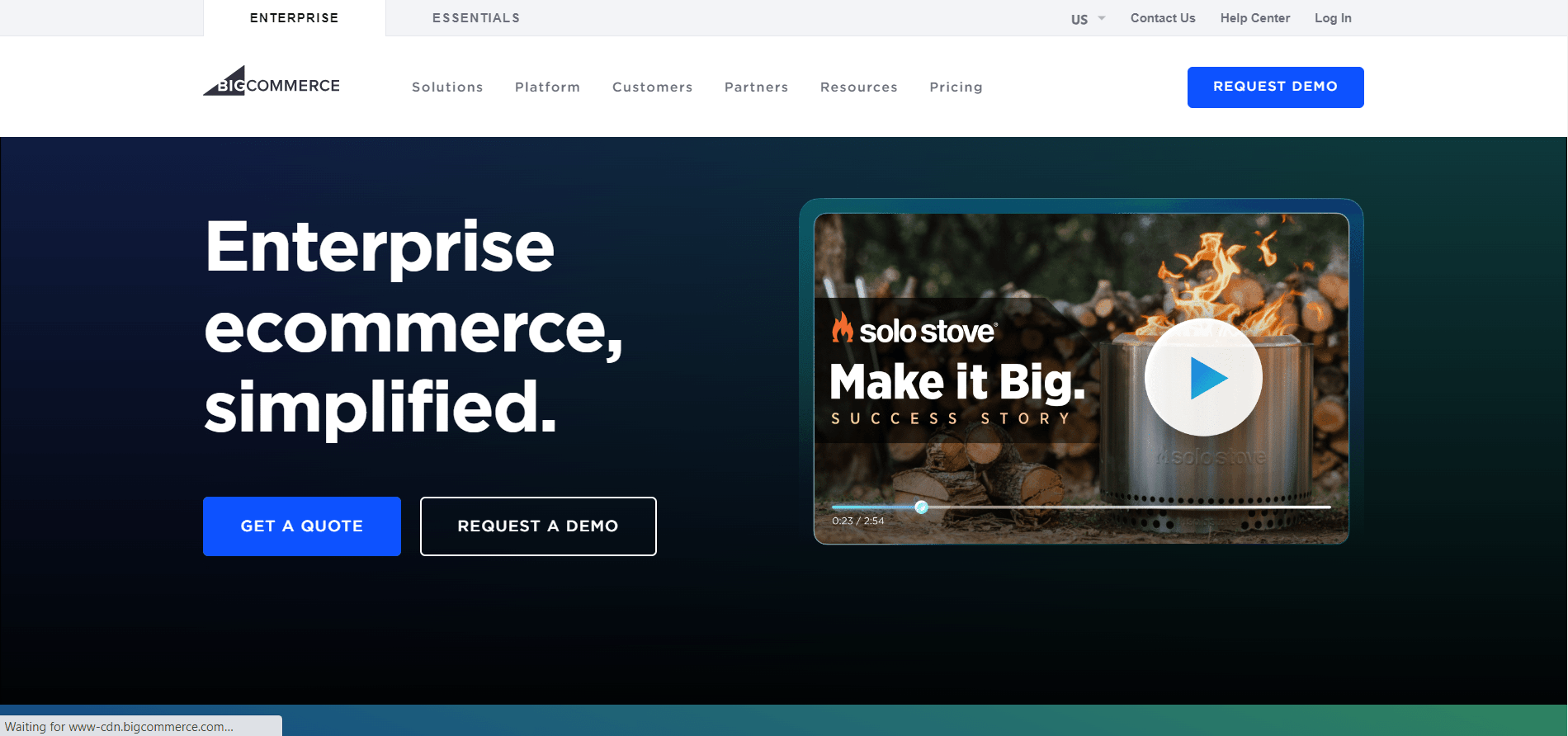
$29 – $299
- Abandoned cart recovery, no transaction fees, omnichannel selling
- Unlimited file storage, products, and bandwidth
- Less downtime
- Single-page checkout
- Gift certificates and coupons
Pros
- Scalable and flexible
- Excellent SEO Performance
- Excels with multi-channel selling and order management.
- Excellent theme designs
- Abandoned cart feature
Cons
- Cart abandonment is not available with the entry plan
- It gets expensive for high-volume stores
- No 1-click Selling/Upsells
Overall, BigCommerce is among the best e-commerce platforms. Its robust product search engine impresses, making it the perfect choice for larger retail businesses. Big Commerce is also a fabulous choice for entrepreneurs who want to initiate an e-commerce store. Some brands which are doing great with brick-and-mortar stores can also expand their operations by going online.
You can customize your online shop with an easy-to-use interface without coding knowledge. You can also choose from various customizable templates to design your store and sell your products. However, it allows tech-savvy users, who may know CSS or HTML to take more control over their e-ecommerce stores.
Why Choose Big Commerce
- Guarantees the easiest onboarding experience.
- The setup procedure is quick and simple. Thus, launching a new business becomes easier for newbies.
- Store owners can manage their products, orders, and customers hassle-free.
- Big Commerce is SEO-ready. This platform enables users to add keyword-rich information manually.
- Big Commerce offers mobile-friendly themes and templates and themes to attract as many users as possible.
WIX
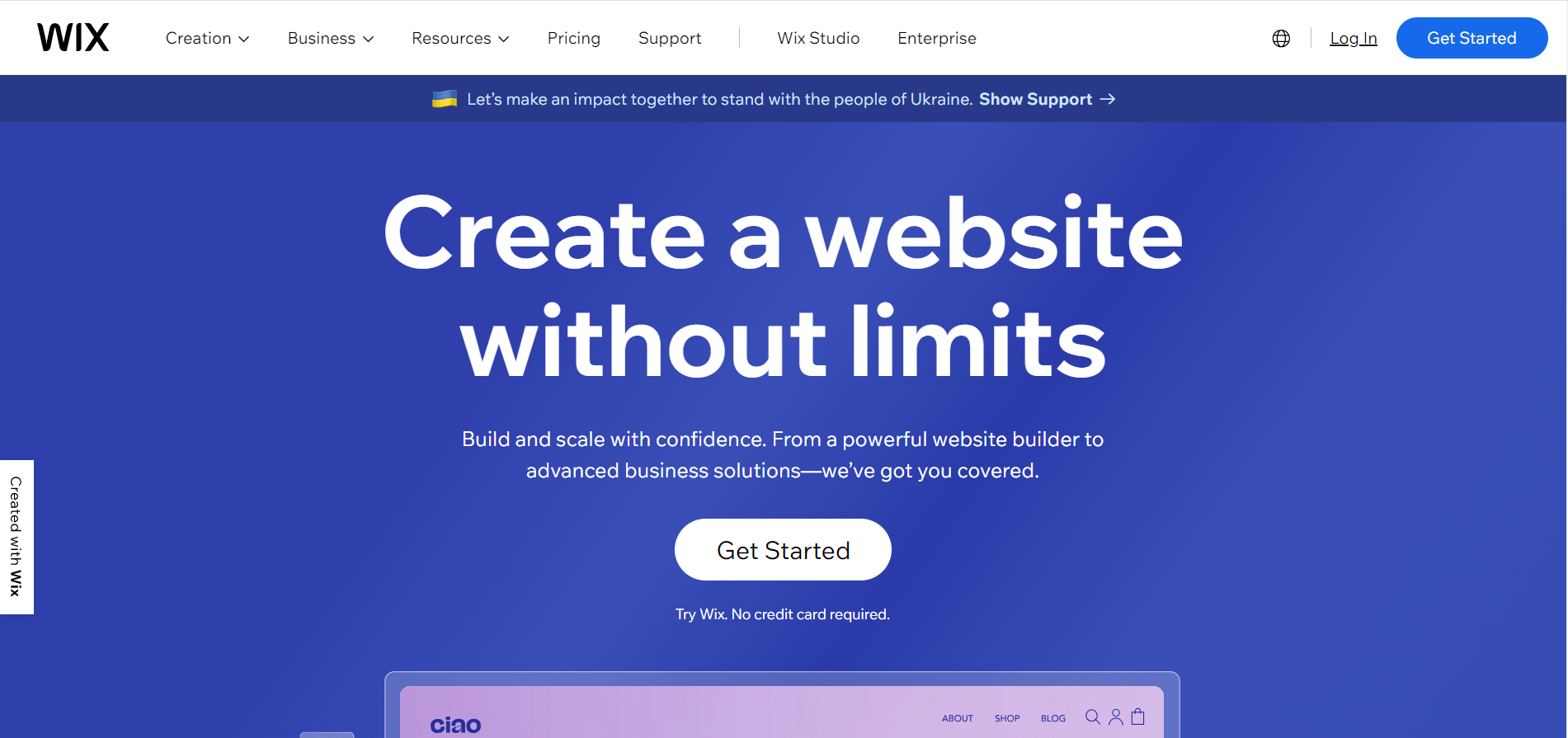
$23 – $49
- All-inclusive plans and abandoned cart recovery
- Built-in SEO
- Easy-to-use drag-and-drop interface
- Offers 200+ app integrations
- The Wix ADI or Artificial Design Intelligence editor is ideal for beginners
- With the Business and eCommerce plans, users can easily convert their website into an online store
Pros
- Accepts recurring payments
- Allows users to sell digital and physical products
- Automatic shipping and tax calculator
- Competitively priced plans
- Free basic plan available
- Free domain name and SSL certificate
- Unlimited bandwidth and storage
Cons
- Some themes do not look too professional
- Cannot connect a custom domain to the free plan
Wix was not the first choice for e-commerce store owners. But today, Wix is among the leading e-commerce platforms. It delivers excellent value for small business owners and solopreneurs. The fabulous e-commerce features of this popular platform are evolving drastically. You get abandoned cart recovery, multi-channel integration, print-on-demand, and drop-shipping capabilities.
Since it’s an excellent option for beginners, many e-commerce businesses use it for opening their first online store. With its quick and easy drag-and-drop features, adding features, images, and videos to your store is easy. You can choose from over 500 themes, of which 72 are free.
Why Choose Wix
- Easy setup for new users
- Easy to edit
- Excellent security
- Truly free-form design
Core Commerce
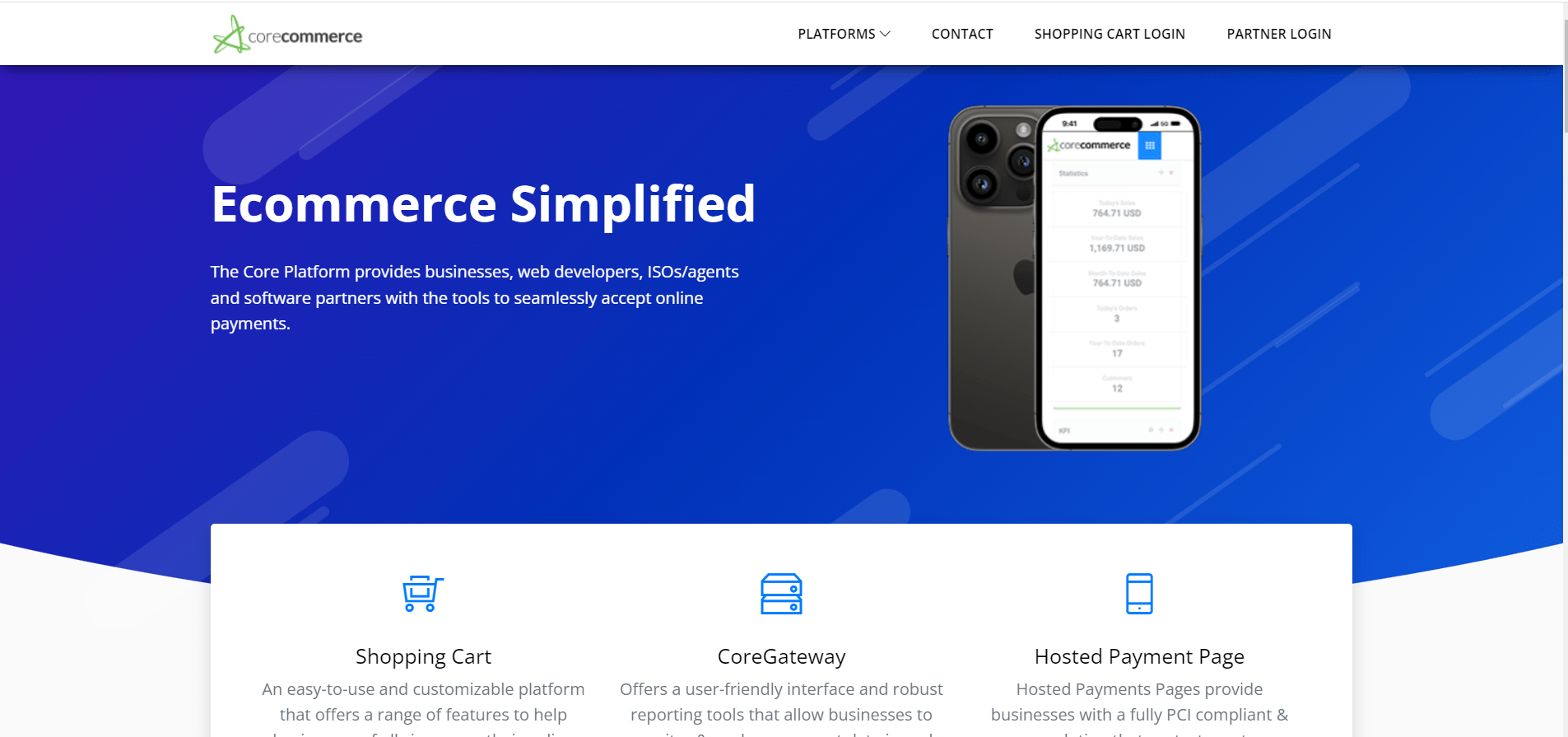
Apart from its free plan, the paid plans include Pioneer for $29/month, Pro for $79/month, and Pro Plus Unlimited for $229/month.
The platform has impressive features and an excellent customer support team. It is among the best options for small to medium businesses. Some prominent features include:
- Abandoned cart saver
- Bulk ordering
- Categorization/Cataloging
- Channel and communication management
- CRM
Pros
- Daily Backups
- Flexible Shipping Setup
- Free 15-day trial
- Unlimited Admins
Cons
- Limited Inventory
- Limited Storage Space
Launched in 2001, Core Commerce primarily focuses on the needs of small to medium-sized businesses. This platform emphasizes transparency and simplicity while providing easy-to-use features.
One of the most unique things about this e-commerce platform is that it offers many features in all its plans. The pricing of the package depends on the products you want to add to your store. For example, you can add up to 150 products is the number of products with a pocket-friendly plan. With each plan, you get $50 of ads credit for Facebook.
Core Commerce provides product management, store design, marketing, and order processing functionality. This platform also offers several e-commerce solution services. For example, a built-in blogging engine, various product customization options, and secure hosting by Rackspace.
Why Choose Core Commerce
- Choose from many beautiful e-commerce store designs. The options include responsive and mobile-friendly designs.
- Affordable custom design website
- Design the perfect experience for your customers with hundreds of app and integration options that allow you to
- In-built marketing tools for supporting personalized and high-quality customer contact.
- Customizable coupons, discounts, gift certificates, and marketing tools for attracting and retaining customers.
- In-depth reporting tools for converting visitors into customers and analyzing customer engagement throughout the buyer’s journey
Square Space
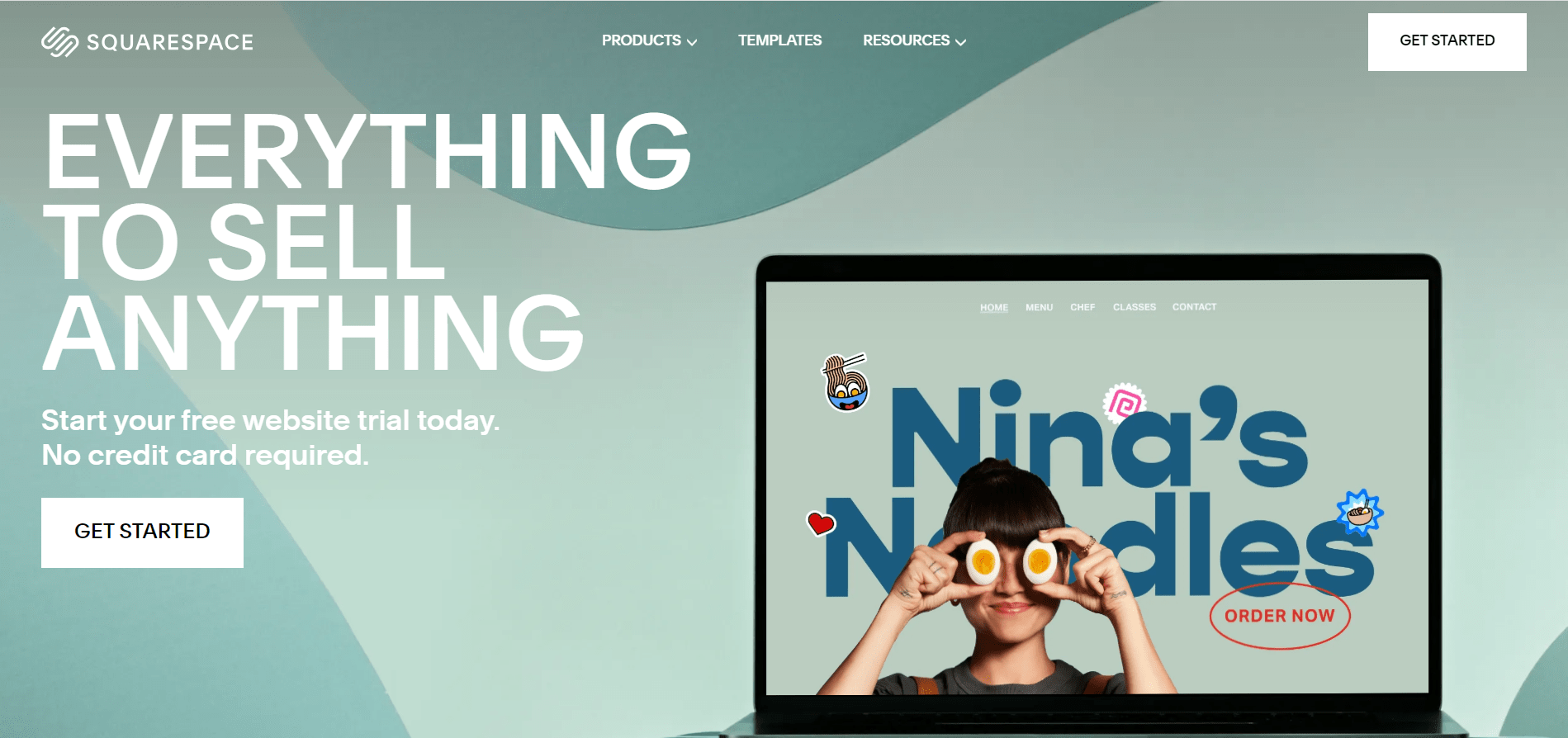
Plans include Big Commerce Standard for $39/month, Big Commerce Plus for $105/month, and Big Commerce Pro for $399/month. Big Commerce Enterprise requires custom pricing according to different ecommerce conversion optimization requirements.
The e-commerce platform offers custom color palettes, high-quality and free images through Unsplash, built-in image editing capabilities, flexible layouts, Google and TypeKit fonts, background banners, animation, and video options. Other features include:
- Drag-and-drop functionality
- Mobile responsive sites
- Social media marketing tools
- Unlimited storage and bandwidth
Pros
- Beautiful designs
- Excellent choice for designing basic e-commerce stores
- Integrates with ShipBob and ShipStation
- Quick to set up To Set Up
- Robust SEO tools
Cons
- It could be faster for the price
- No Amazon integration
- No app store for more functionalities and features
- No drop shipping
- No marketing automation integration
We highly recommend Square Space for users who need an online store with more substance and style than an average shopping-cart-focused store. Store owners can provide a unique shopping experience to the customers, which is important for businesses competing in the online world.
Like all other popular e-commerce platforms, Square Space provides excellent e-commerce solutions services. That includes tagging products on Facebook, Twitter, and Pinterest. That will enable people from different communities to visit your shop.
Why Choose Square Space
- It’s an all-in-one solution
- Low-maintenance and simple to use.
- Several built-in features allow you to make an SEO-friendly website. For example, automatic redirects, auto-generated clean site maps, mobile responsiveness, and SSL security.
- The drag-and-drop editor allows users to add images, text, and other types of content. You can quickly move these elements around to create an appealing design.
- The platform handles your store’s domain, hosting, features, templates, analytics dashboard, security, and SEO.
Adobe Commerce (formerly Magento)
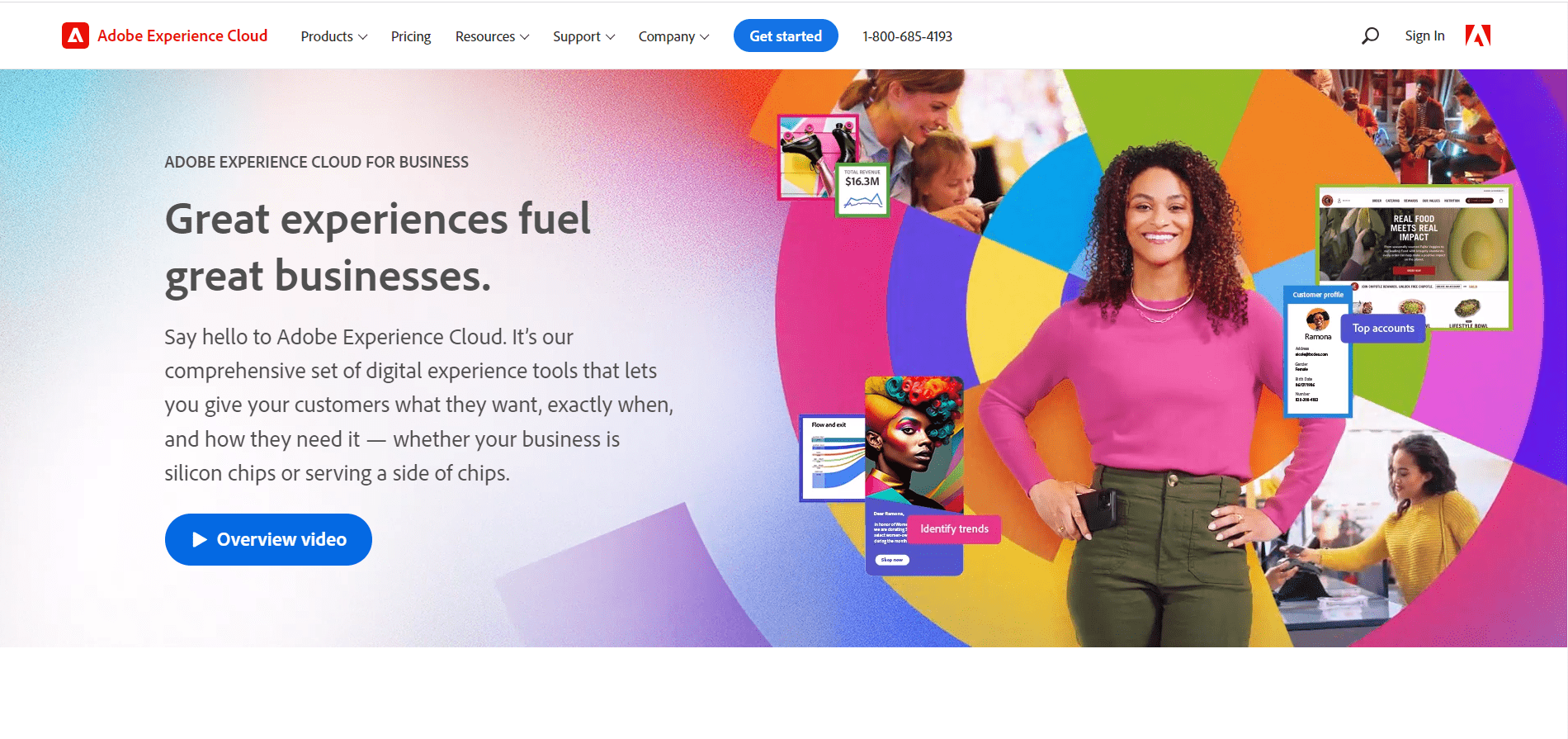
Magento Enterprise subscription starts at $22,000 per year.
- Adobe integration and artificial intelligence
- Content management
- Customization capabilities
- Discounts and Promotions
- Easy checkout process
- Product configuration
- SEO tools
- Smooth order management
Pros
- 1-Click selling
- Extensive community
- Feature-rich and secure e-commerce platform
- Flexible to choose where you want to host the software
- Highly customizable and scalable
- Strong SEO capabilities
Cons
- Expensive themes
- It needs users to have development skills
- No customer support
- Requires ample memory and space to perform well
Many renowned brands like P & G, Nike, and Cisco trust this platform. Since coding is a crucial part of the package, hiring professional developers to work on this platform will help store owners get the most out of its features.
While the platform is mainly free, there is a paid version for large e-commerce businesses. This platform is only for some because the annual licensing fee costs tens of thousands. However, it’s on the cloud and has extra features, including automatic cross/upsell and trigger-based email campaigns.
The platform makes selling products online easy with a long list of features like adding unlimited products, SEO functionalities, and membership subscriptions. Its extensive cross-marketing and up-selling features help stores offer targeted and relevant customer features. The best part is that businesses can manage multiple store versions with a single admin interface.
Since Adobe Commerce is a PHP-based platform, developers can quickly scale e-commerce stores according to their demands. In addition, this feature makes it incredibly customizable.
Why Choose Adobe Commerce
- Adobe Commerce offers a seamless, user-friendly experience regardless of the screen size or device.
- The platform has a unique content management system that allows online store owners to upload new products without any coding language. The backend interface is very user-friendly.
- Users can easily comply with SEO practices to configure their web platform according to the latest SEO requirements.
Final Thoughts
Every online store has different needs and budgets. Hence, selecting the right e-commerce platform is crucial for meeting your needs and budget. You should also know the type of online store you want to set up. That makes it easier for everyone to choose the most appropriate e-commerce platform.
If you want to launch your online store journey, contact us today. We provide professional e-commerce development services to our valued customers.
FAQs
What is the Most Popular E-Commerce Platform?
According to the stats in June 2023, Ali Express is the world’s most visited e-commerce and retail website. Other popular platforms include ebay.com, amazon.com, etc.
How do I Find the Best Ecommerce Platform?
You should look for features that can make your e-commerce store user-friendly. The platform you choose should also offer easy integrations with popular payment gateways to ensure easy and quick checkout.
Is Shopify the Best Platform?
Forbes revealed that Shopify is one of the best e-commerce platforms for all types of businesses. Shopify is a popular e-commerce platform that makes designing and running an online store easier. Store owners can sell services and products via several outlets. These may include social media outlets, the website, and online marketplaces.
How to Sell Online Products?
When you use an online marketplace or an e-commerce platform, selling products becomes more manageable. For example, Amazon Marketplace or Etsy help businesses and entrepreneurs set up their shops. Small companies can start selling their products online. Users can also design stand-alone stores and set them up on their websites.
Which E-Commerce Platform Is Best for Startups?
Squarespace, Wix, and Shopify are some of the most popular e-commerce platforms for startup businesses.
